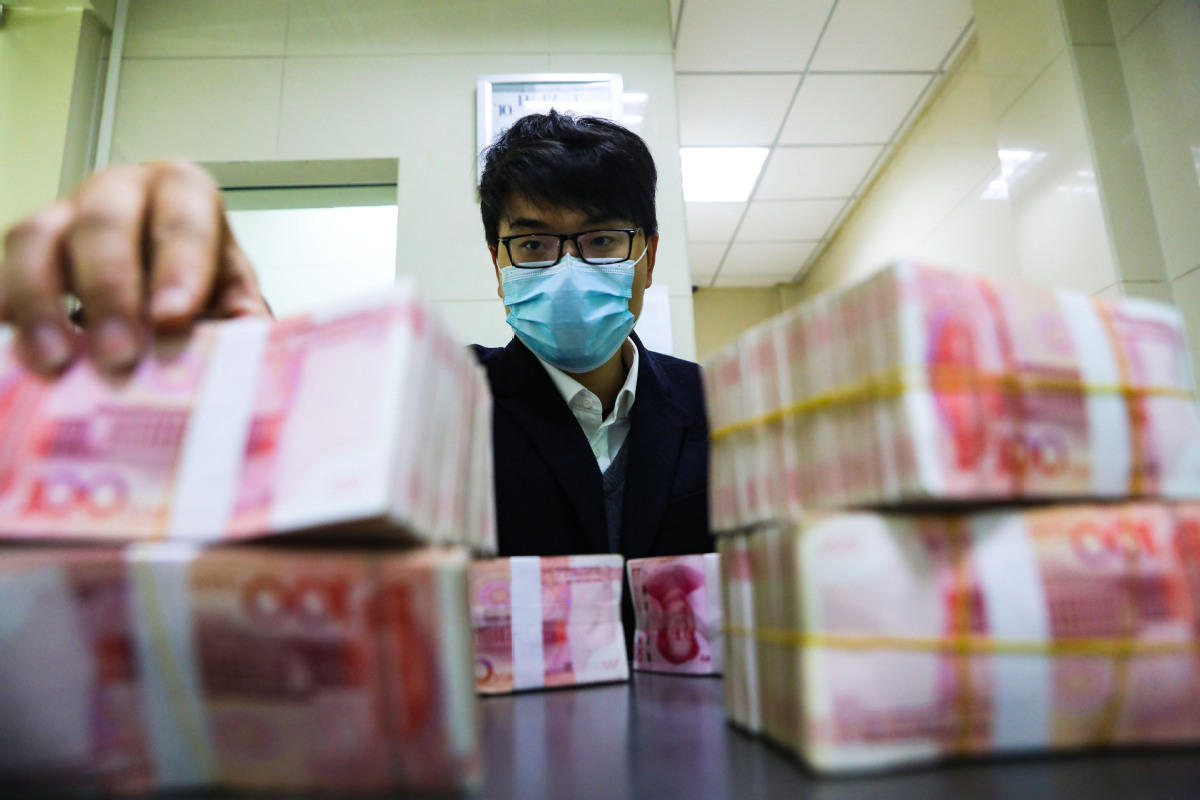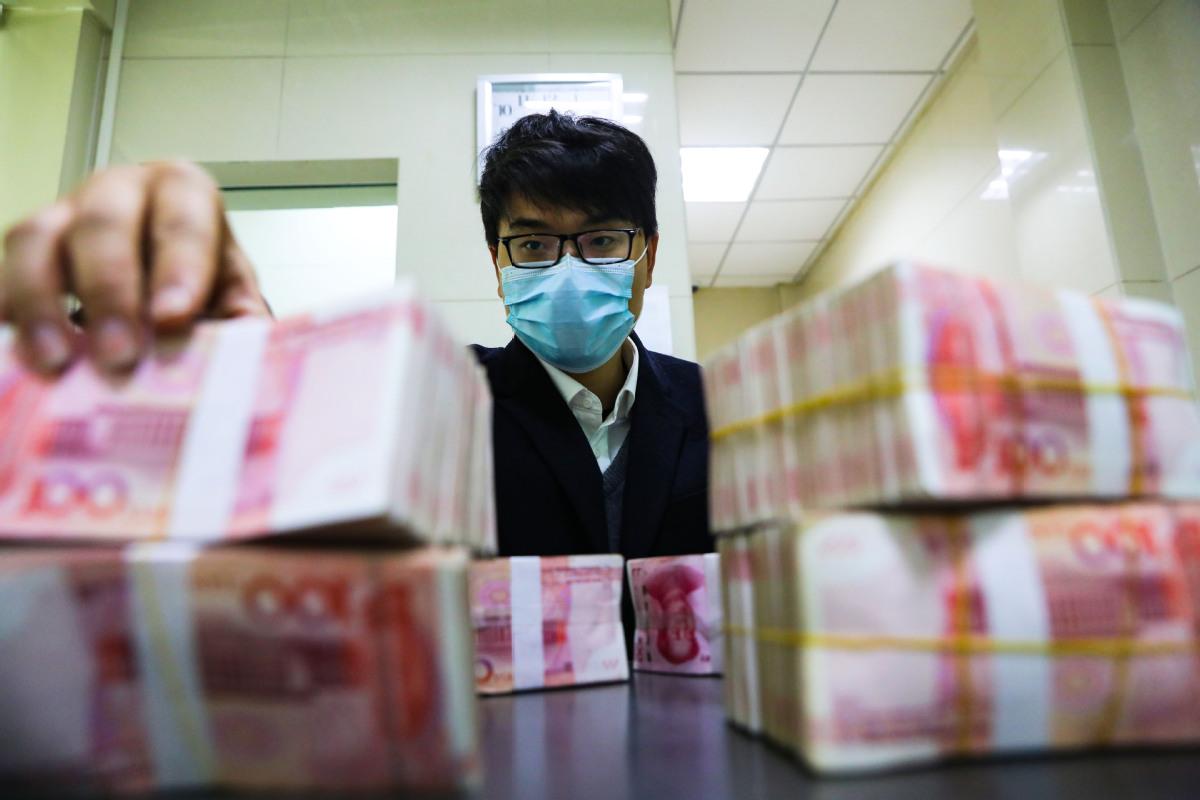 An employee of Lin'an Rural Commercial Bank counts banknotes at the bank's branch in Hangzhou, capital of Zhejiang province, on Feb 25. [Photo by Hu Jianhuan For China Daily]
An employee of Lin'an Rural Commercial Bank counts banknotes at the bank's branch in Hangzhou, capital of Zhejiang province, on Feb 25. [Photo by Hu Jianhuan For China Daily]
Foreign investors are increasing fund allocations in China's booming government bond market, in anticipation of higher returns at a time when central banks in developed markets are further slashing rates, experts said.
Local government bond issuances in May totaled 1.3 trillion yuan ($183.4 billion), a record, as local governments continued to accelerate fundraising via bonds, despite recent price volatility.
A study from Morgan Stanley said on Wednesday that the average monthly government bond issuance could be around 1 trillion yuan during the June-to-September period.
The growth in government debt is largely to finance the unprecedented fiscal stimulus package this year to counter the shocks of the novel coronavirus epidemic. The government plans to issue government bonds worth 8.51 trillion yuan, 3.6 trillion yuan higher than in 2019, to maintain large spending and bail out the weak and smaller businesses.
Freddy Wong, managing director and head of fixed income for the Asia-Pacific region at Invesco, said on Wednesday that Chinese government bonds have maintained their attraction for foreign investors, as interest rate spreads are further extending when major central banks are keeping lower interest rates and conducting quantitative easing to spur the economy amid the COVID-19 outbreak.
"Foreign investors will prefer to hold the government bonds as the Chinese government has vowed to channel the funds into the real economy and accelerate production resumption, which will strengthen the market's confidence in economic recovery," said Wong.
A senior official from the National Treasury Department of the Ministry of Finance said earlier that more policy measures will improve the market liquidity to support the government bond issuance and accelerate the opening up of the onshore bond market, making local government bonds more attractive for foreign investors.
Data from China Central Depository and Clearing Co Ltd showed that by the end of May, foreign institutions held 2.43 trillion yuan of Chinese bonds, up by 114.6 billion yuan on a monthly basis. In May, the net increase in bond purchases by foreign investors was 167.6 billion yuan, with the average daily trading volume rising to a record.
Some investors were, however, apprehensive that bond issuances in June and July may tighten liquidity, as the yield on 10-year cash bonds is approaching its highest level since February. Some said the recent bond price drop was a normalization from an unconventional low interbank rate in March and April to reduce arbitrage risks within the financial system.
Economists said that after the COVID-19 pandemic, public debt and deficits of both advanced and emerging economies will be far greater, with supports from the central banks seen as the possible solution to the problem, especially if the government hesitates to raise taxes in the post-pandemic period.
Robin Xing, chief economist for China at Morgan Stanley, said that with such a huge amount of net government bond issuances in the coming months, market liquidity may weigh on bond issuances, and the People's Bank of China may accommodate the large bond supply with prevailing tools such as fund injections through the medium-term lending facility, reserve requirement ratio cuts, and window guidance to keep interbank liquidity largely stable.
Given that the 2020 Government Work Report stated that both broad money supply and aggregate financing should be "significantly higher" than last year, Xing said that sustaining a faster growth of aggregate financing remains the central bank's top goal.
(Source: China Daily)




 A single purchase
A single purchase









